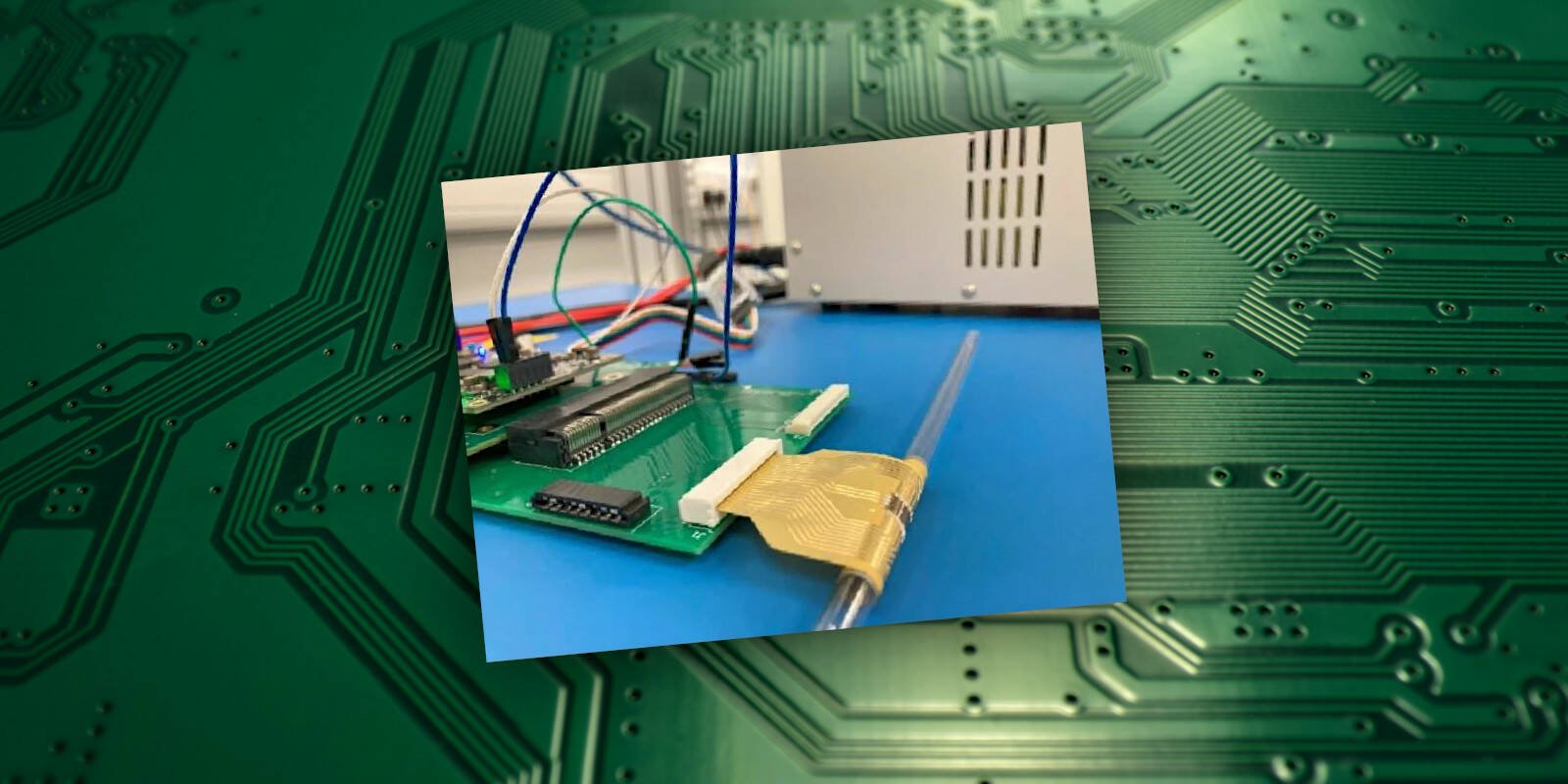Bending The Rules With Flexible Non-silicon 32-bit RISC-V Chip

Brit chipmaker Pragmatic Semiconductor has created a 32-bit microprocessor in a "flexible technology that is fully functional while flexed."
The Flex-RV processor isn't about winning performance benchmarks, but creating a new bending compute solution to fit in unconventional places. That said, it does include a programmable machine-learning hardware accelerator and RISC-V instructions for using it, so it can do some simple AI work.
Ditching traditional silicon, commonplace for conventional processors and compute devices, this RISC-V-based microprocessor uses indium gallium zinc oxide (IGZO) transistors layered on polyimide.

Bendability test of the Flex-RV on a FlexPCB while executing test programs - figure from the Nature paper
IGZO is more commonly found in flat screens and touchscreen devices. In fact, the Flex-RV processor is a chip that works while wrapped around a pencil, while clocking in at a leisurely 60 kHz. But who cares about clock speeds when the aim is cheap and disposable tech?
The Flex-RV sports just 12,600 logic gates, but that's certainly enough to power a new generation of embedded applications – things such as smart bandages, flexible electronics, and interactive packaging. The RV32E Flex-RV chip is programmable, bendable, and affordable. The primary use case is for the everyday devices that silicon can't or won't reach. Cambridge-based Pragmatic's pitch is simple: Put computing where silicon isn't applicable.
- Pragmatic Semiconductor opens UK's first 300mm wafer fab in Durham
- Brit bendy chip firm Pragmatic scores funding to boost production
- UK government's semiconductor brain trust meets for the first time
- Chipmakers threaten to defect to US, EU if UK doesn't get its semiconductor plans sorted
The Brit company behind the tech opened its Pragmatic Park site at Durham, northeast England, earlier this year, claiming it was the UK's first production facility for producing 300mm semiconductor wafers.
The Cambridge boffins published a paper on the tech behind Flex-RV in Nature earlier this week.
This isn't just about making chips bendy just for fun; the real kicker is the low cost of production. IGZO fabrication doesn't need the clean-room-level precision that silicon demands, slicing all those major production overheads. Since it doesn't shatter under pressure, the Flex-RV also doesn't need the expensive packaging of silicon chips. Being cheap, rugged, and adaptable makes it the perfect fit for fast-moving consumer goods, disposable medical tech, and anywhere else you'd never think to put a CPU.
The tech is bending the rules, quite literally, and it's more than just technical gymnastics. It's about making computing cheap and flexible. Regular readers will know we've previously covered boffins' efforts to make bendy chips and electronics – for example, here, here, and here.
This kind of silicon-free technology marks a significant shift from the power-hungry paradigms we see in silicon to being more pervasive, albeit far slower in terms of raw MHz (kHz in reality).
It's also nice to see more RISC-V-compatible silicon flying around, filling the nooks and crannies where normal silicon can't physically go. Don't expect to run Crysis on your next smart bandage or medical device, but we might just be heading for a future where every surface-level device, product, and packet has a brain powered by a Flex-RV chip/IC or a similar silicon-free device. ®
From Chip War To Cloud War: The Next Frontier In Global Tech Competition
The global chip war, characterized by intense competition among nations and corporations for supremacy in semiconductor ... Read more
The High Stakes Of Tech Regulation: Security Risks And Market Dynamics
The influence of tech giants in the global economy continues to grow, raising crucial questions about how to balance sec... Read more
The Tyranny Of Instagram Interiors: Why It's Time To Break Free From Algorithm-Driven Aesthetics
Instagram has become a dominant force in shaping interior design trends, offering a seemingly endless stream of inspirat... Read more
The Data Crunch In AI: Strategies For Sustainability
Exploring solutions to the imminent exhaustion of internet data for AI training.As the artificial intelligence (AI) indu... Read more
Google Abandons Four-Year Effort To Remove Cookies From Chrome Browser
After four years of dedicated effort, Google has decided to abandon its plan to remove third-party cookies from its Chro... Read more
LinkedIn Embraces AI And Gamification To Drive User Engagement And Revenue
In an effort to tackle slowing revenue growth and enhance user engagement, LinkedIn is turning to artificial intelligenc... Read more

